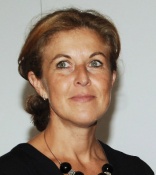Home › magazine › business reports › Professional detergents industry drives a sustainable agenda
Professional detergents industry drives a sustainable agenda
4th of October 2022A.I.S.E. is the umbrella organisation representing the European detergents and maintenance products industry. Its professional cleaning and hygiene sector manager Aisling O’Kane tells us how the sector has been a pioneer in driving sustainability.
For seven decades A.I.S.E. has guided and led the work of the European detergents industry. Long before it was popular, this industry was a pioneer in sustainability, taking an active and responsible approach to reducing our environmental impact, through industry-wide voluntary initiatives. Today, our industry actively contributes to the ambitious EU and UN environmental agenda through industry innovation and multiple voluntary initiatives. We are part of the solution for a sustainable future and for closing the loop on the circular economy.
Highly concentrated products
The professional cleaning sector is inherently sustainable - an industrial laundering facility for example, that processes hospital and hotel linens or workwear, will be supplied with concentrated laundry detergent delivered in large containers. This will be automatically dispensed to ensure the precise amount of detergent for the job. Hundreds of kilos of laundry will be processed per day, using less water and energy per kilo than in a domestic machine.
For industrial applications, manufacturers optimise resources with highly concentrated products: when not diluted before use, less water is transported, less packaging used, and transport emission are vastly reduced.
Concentrated products are a key strength of the sector, essential for sustainability and substantially lowering CO2 emissions across the full life cycle.
Unlike the domestic cleaning market, professional products are delivered as part of a full package, which can include dispensing equipment, safety instructions and training to ensure the product is safely and efficiently used. State of the art dosing equipment and trained cleaning personnel ensure the correct amount of detergent is dispensed for each application. Considering the large scale of industrial applications, this ensures optimal performance, prevents spillage and waste, and saves on chemicals, water, energy, packaging and transport.
Balancing resources
The professional cleaning process is a sophisticated balance of four parameters. To ensure optimal performance and a sustainable process, the circle must remain balanced: if one parameter is reduced, another must be increased. The chemical formulation of products is therefore a critical factor in maintaining this balance – any change such as replacing an ingredient, or reformulating a product can have an adverse impact on sustainability with more water, higher temperatures and
higher dosage.
The Green Deal Circular Economy Action Plan
A.I.S.E. is wholly committed to proactively contributing to the European Commission’s Green Deal, notably through the Chemicals Strategy for Sustainability and the Circular Economy Action Plan, which are key for delivering the Green Deal objectives. Our work takes a holistic approach, addressing sustainability, circularity, users’ needs as well as industry competitiveness. In all of these areas, our voluntary industry initiatives, which have proven to bring meaningful and measurable improvements in our sector, are highly relevant and applicable. The flagship voluntary initiative is the Charter for Sustainable Cleaning.
The A.I.S.E. Charter for Sustainable Cleaning
Corporate action and voluntary industry initiatives go hand in hand and complement each other. The A.I.S.E. Charter for Sustainable Cleaning is a voluntary initiative that encourages the whole industry to pursue ambitious sustainability improvements across the whole life cycle of a product. With independent verification and KPI reporting, it drives measurable progress on a number of criteria, ranging from environmental safety to eco-efficiency, corporate social responsibility, occupational health and safety, resource use and end-user information.
A wide variety of activities are covered, lifecycle analysis (LCA) based, the Charter provides a common industry approach to sustainability practice and reporting with robust independent verification. The Charter has a proven track record of delivering tangible improvements in environmental performance for the last 16 years.
Since 2006, Charter members have achieved:
• 39 per cent lower CO2 emissions
• 39 per cent less energy use, per tonne of production.
Of the Charter member companies today, 53 companies are specifically active in the professional cleaning sector. As part of the Charter, Advanced Sustainability Profiles (ASP) are required for product groups such as professional building care products, covering specifics such as packaging weight; recyclability, reusability, compostability; dosing systems; training and end user information; and cleaning performance.
More information is available on www.sustainable-cleaning.com or directly from A.I.S.E. Contact the A.I.S.E. secretariat: aisling.okane@aise.eu








